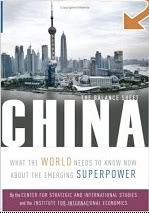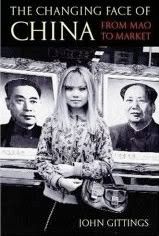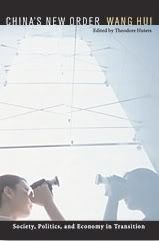Democracy with Chinese Characteristics
 www.chinaview.cn 2007-03-16 14:18:57
www.chinaview.cn 2007-03-16 14:18:57Special Report: NPC, CPPCC Annual Sessions 2007
By Xu Xuejiang
BEIJING, Mar. 16 (Xinhuanet) -- The annual sessions of the National People's Congress, China's top legislature, and the National Committee of the Chinese People's Political Consultative Conference, the top political advisory body, are a display of democracy with Chinese characteristics.
"The atmosphere of democracy is growing steadily during the annual sessions. The democratic system with the Chinese style is becoming a new model for the democratic system in the world," noted the Indian Information Network, which published articles and commentaries on the annual sessions.
The network said that there does not exist the western democracy model in the world only. So long as the essence of democratic essence is adhered to, namely, people are the masters of their country, the democracy is an effective democracy … China's democratic system is suited to its national conditions.
This conclusion is one of the reports and commentaries that are objective, the Xinhuanet commentary said, adding that its view on the diversity of democratic models accords with the reality in the world.
As an old saying goes, "The onlookers see most clearly."However, some Chinese living in the environment of China's political democracy, do not necessarily have a profound understanding of their own democratic system, with the result that they do not treasure the fruit of their own political democracy.
Why is it that the democratic system with the Chinese style is a new model for the democratic system in the world, the commentary posed the question. Because it has distinct Chinese characteristic that differ from those of other models of democracy. The two sessions are regarded as a good illustration.
Democracy with Chinese style ensures that one fifth of world population enjoy unprecedented democratic rights
In recent years, the two sessions held every year have been attended by more than 3,000 NPC deputies elected through democratic election and 2,000 CPPCC members elected through democratic consultation
The deputies and members come from all walks of life and all parts of the country. With the sense of responsibility for the country and the people and bearing the expectation and entrustment of voters, they meet in Beijing to spend half a month discussing and deliberating the government work repot, and examining and adopting laws.
Moreover, they make proposals and offer advice on national political guidelines, national construction and development, and various issues closely related to people's immediate interests.
Their discussions involve a wide range of hot topics in Chinese society today, including the anti-corruption campaign, soaring housing prices, education reform, the reform of the medical care system, employment, rural issues, the widening gap between the rich and the poor, the imbalance of development, environmental pollution, the social security system, security, and population.
In spite of their different social status and posts, the participants in the annual sessions sit down on an equal footing as "deputies" and "members,"and air their opinions freely. This form and scene of democracy are rarely seen in the world.
Annual sessions system reflects unique design of China's democratic system
The commentary noted that the unique creation of China's democratic system finds expression primarily in the design of the people's congress system and the system of multi-party cooperation and political consultation under the leadership of the Communist Party of China (CPC).
The NPC and the CPPCC National Committee are similar in some functions to the House of Representatives (or lower house) and the Senate (or the upper house) in the West. Yet they have many characteristics that foreign parliaments do not have.
"Above all, the NPC and the CPPCC National Committee are more people based, namely, the people enjoy more rights to participate directly in democracy and political affairs," the commentary said.
The people's congress system is China's fundamental political system and the organizational form of the state power. The NPC is the highest institution of state power, national institution of legislature, and the supreme state power.
It pools the voice and will of the people all over the country. Through the voting right of more than 3,000 deputies, it adopts national laws, examines the government work report, elects the state's leaders, and performs other major functions. The people's congress system provides a smooth channel for democracy, and enfolds a large arena for democracy and the legal system as well.
The system of multi-party cooperation and political consultation under the leadership of the Communist Party of China is a basic political system in China, and serves as a concentrated display of party politics with Chinese feature.
Because of the choice by history, the CPC is the party in power in China, while the eight non-communist parties cooperate with the CPC in managing state affairs, and are not opposition parties. The CPC and other political parties follow the principle of "long-term coexistence and mutual supervision."
As an organization involving the broadest united front, the CPPCC performs such functions as holding political consultations, exercising democratic supervision, and participating in discussing state affairs.
The 10th CPPCC National Committee has 2,238 members, with CPC members making up 40 percent, and non-CPC members the rest. Among the non-CPC members, 666 are members of the eight non-Communist parties, and 262 members are from 55 ethnic groups, and other mass organizations and religious groups, as well as celebrities. They are very active in exercising their democratic rights during the annual sessions.
China's democracy is characterized by combination of officials and common people
The commentary said that the NPC deputies and CPPCC National Committee members have a proportion of government officials and common people from all walks of live, who are able to participate in managing and discussing State affairs.
Meanwhile, government officials consist of both senior ones and a great many grassroots cadres. For example, common people account for 30 percent of deputies of the Tenth NPC. This is different from the fact that the western parliament members are all professional politicians.
During the annual session of the NPC, the representatives of common people serve as the "congress members" in managing and discussing state affairs, deliberating laws and the government work report, and exercising their voting power.
When they return to their workplaces, they are just common people. This organizational structure is conducive to exchanges and interaction, the commentary said. Government officials can directly hear the voice of the deputies and members from grass-roots units, including the comments on and criticism of the government work.
Meanwhile, the NPC deputies and the CPPCC members from grass-roots units can also directly hear the opinions of their official counterparts. Via media coverage, various opinions are heard by the people around the country.
China's democracy is suited to national conditions
China's modern democratic politics originates in its vast land, and is deep-rooted in its long cultural tradition. It is inalienable from China's national conditions, and the practice of China's revolution and socialist construction led by the CPC.
For instance, the principle governing political consultation is contained in the Constitution, the NPC Law and the CPPCC Constitution, the commentary said.
The country is the common homeland for all ethnic groups and the government is the government for all people. To build into a strong country, it is imperative to mobilize all positive factors and unite all forces that can be united with.
The commentary noted, "Any legal political party should not be excluded from the national political life, the interest of any group should not be neglected and the initiative of any individual should not be suppressed."
Therefore, all eight non-Communist parties participate in managing state affairs, with their leaders taking seats in national leadership. China is a big family of various ethnic groups so that 55 minority ethnic groups not only enjoy the regional autonomous right, but also have NPC deputies and CPPCC members who have the opportunity to play a role in the national political arena.
Also heard during the annual sessions are the voices of the representatives of the 30 million compatriots in Hong Kong, Macao and Taiwan Province, as well as a large number of overseas Chinese living under a different social system.
Positive results of human civilization are absorbed in promoting China's democratic process
In accordance with the Constitution, the term of office of the NPC and its Standing Committee is five years, and leaders of the Chinese Government are elected every five years. The term of office of local people's congresses at all levels is also five years.
Since China initiated reforms and the opening-up drive, the CPC has continuously improved China's democratic system by summarizing its governing experience, the experience in the global Communist movement and some successful experience in foreign democracy.
For instance, the system of the term of office has been introduced for Party and government leaders at all levels. Under the new system, Party and government leaders can serve the second time at the same position. The total term of the leaders at the same position shall not exceed 15 year. The implementation of the term of office for leaders at all levels has excluded the possibility of life-long tenure, making China's democratic system more healthy and vigorous.
"Practice has proven that that China's democratic system is an effective system," the commentary said.
The NPC deputies and the CPPCC members working in all parts of the country and in different departments serve as the bridge to link people throughout the nation.
Having learned about people's pressing problems, they submit thousands of proposals and bills to the annual sessions every year, which are then sent to various government departments at all levels for handling.
After receiving the feedback reports on handling the proposals and bills from government departments, the standing committees of the people's congresses and the CPPCC at all levels should deliver work reports to all deputies and members at the annual sessions.
Thus, the people's congresses and the CPPCC at all levels not only serve as the arena to promote democracy, but also have become the authoritative institution to help solve many the issues concerning the national economic development and the people's livelihood.
The key criteria for judging whether a democratic system is good or bad lies in whether the people's will is fully reflected, whether their right to serve as the maters of their country is fully exercised, and whether their legitimate rights and interests are fully protected.
The commentary noted, "China's democratic system can stand the test of the time and have been proved by practice as a good system,"the commentary said.***
Editor: Pan Letian
Link




0 Comments:
Post a Comment
Subscribe to Post Comments [Atom]
<< Home